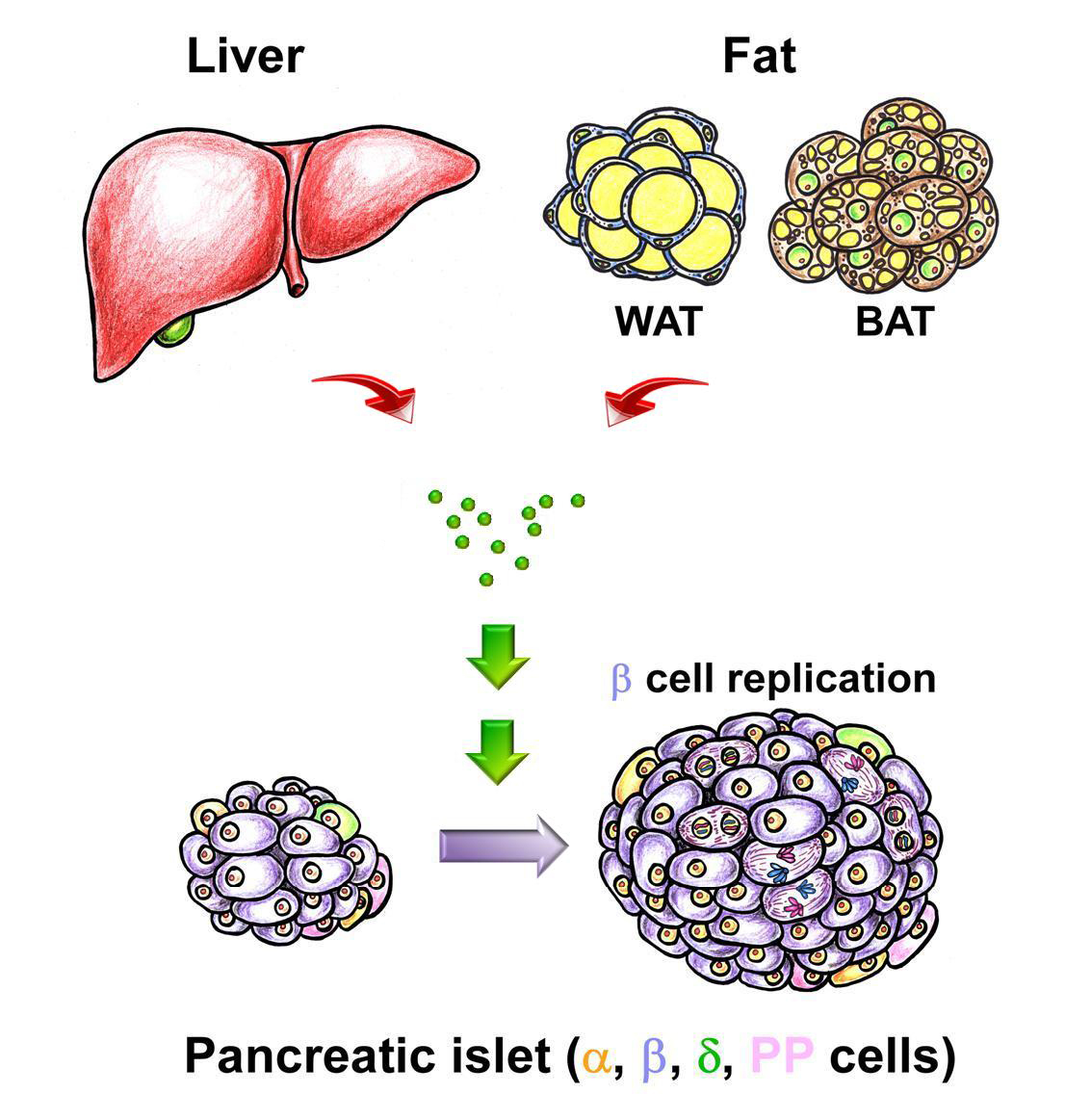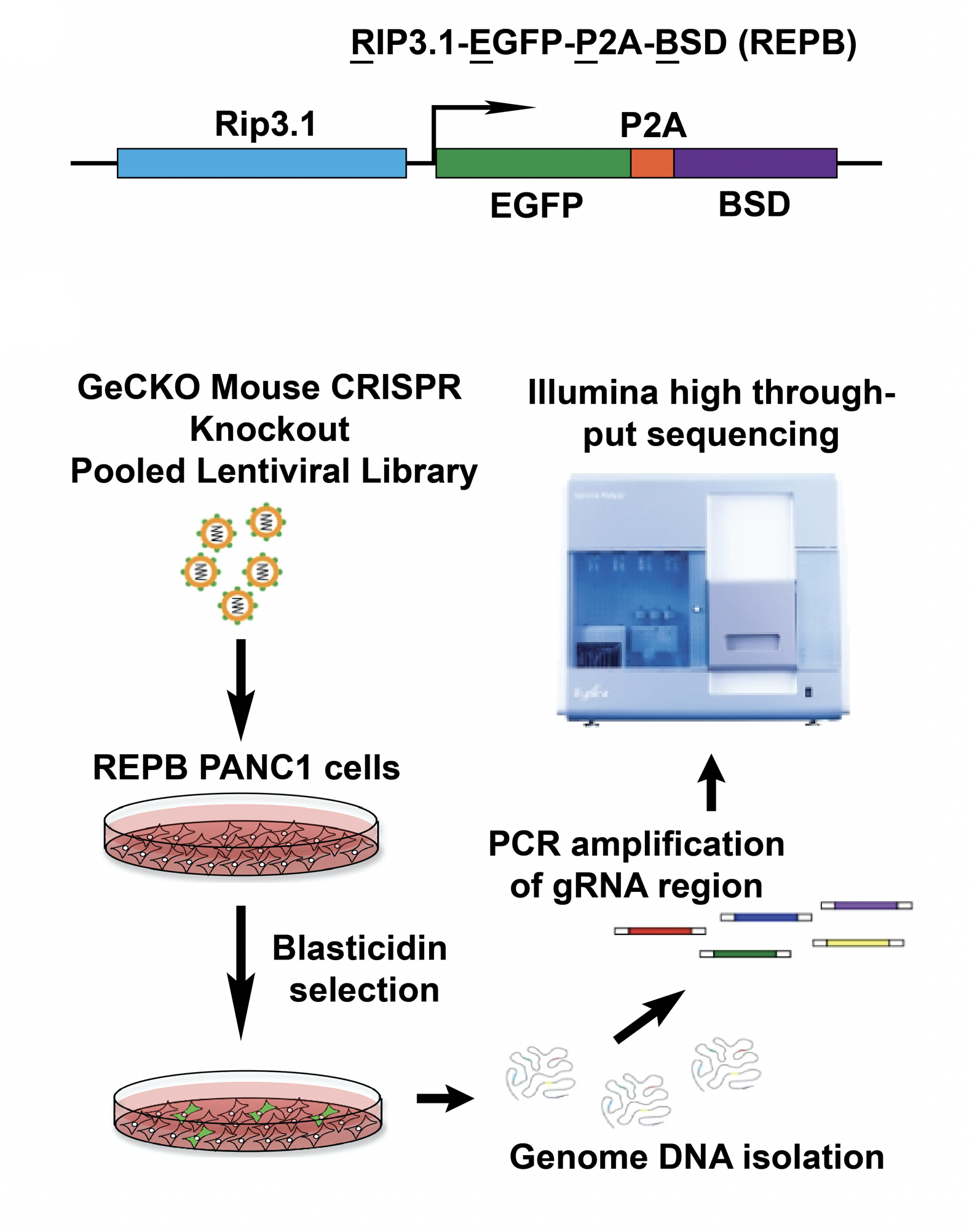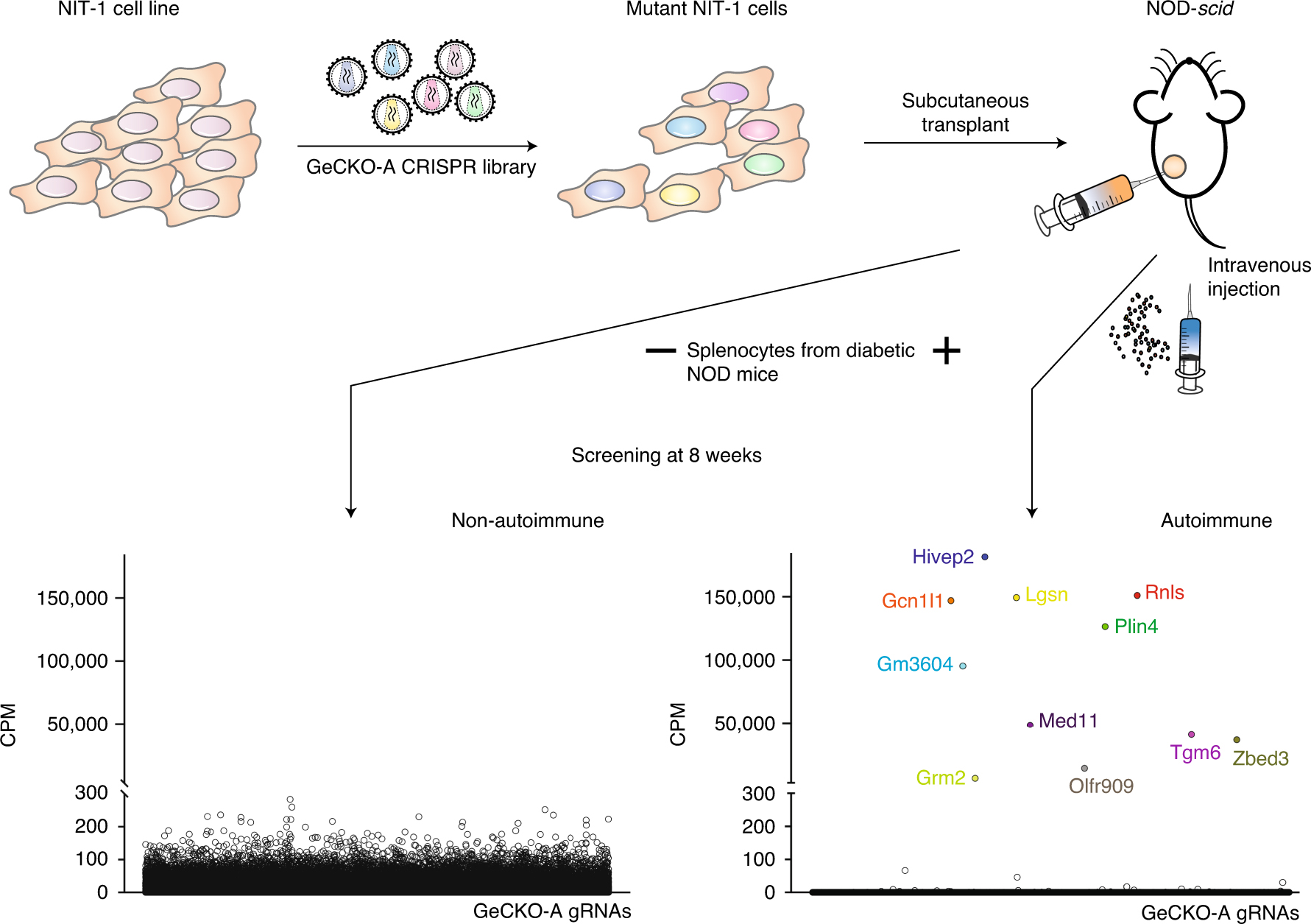Research

The Mechanism of Pancreatic Beta Cell Replication
We are interested in studying gene networks and signaling pathways that control pancreatic beta cell replication under insulin resistance. The laboratory set up an acute insulin resistance mouse model by infusion of an insulin receptor antagonist, S961, which induces dramatic and specific pancreatic beta-cell replication. Our major focus is using this model to search for novel factors, secreted proteins and hormones from various organs/tissues, as well as beta-cell genes that control pancreatic beta-cell proliferation. We also use this model to study cross-organ communication that regulates beta cell functions.
The Mechanism of Pancreatic Beta Cell Neogenesis from Pancreatic Duct Cells.
Pancreatic beta cells can be trans-differentiated from other cell types, such as pancreatic duct cells (beta cell neogenesis from duct cells). Many evidences suggest that pancreatic duct cells have a potential to serve as beta cell progenitor cells under certain conditions, but the underlying mechanism is poorly understood. Our laboratory uses genome-wide CRISPR screen trying to identify novel genes and signal pathways that control the trans-differentiation of pancreatic duct cells into beta or beta-like cells.


Genetic protection of pancreatic beta cells against autoimmune destruction in Type 1 Diabetes.
The laboratory is using whole-genome gain-of-function and loss-of-function in vivo CRISPR screens to investigate the mechanism of pancreatic beta-cell tolerance and vulnerability in Type 1 Diabetes. We recently discovered 11 novel genes, the mutation of which can render beta cells resistant to autoimmune killing. We currently focus on the study of one of these genes, RNLS, a Type 1 Diabetes GWAS gene. We also identified an FDA approved drug, pargyline, that is able to target RNLS and protect pancreatic beta cells in Type 1 Diabetes mouse model.
Genome-wide CRISPR Screens to Study Various Questions in Beta Cell Biology
The laboratory is applying genome-wide CRISPR screen technique to investigate various questions in beta cell biology, including beta cell stress, function, allotransplantation tolerance, as well as human beta cell proliferation.

Postdoctoral Fellow Position
We are seeking talented and enthusiastic postdoctoral researchers to join our research efforts.
